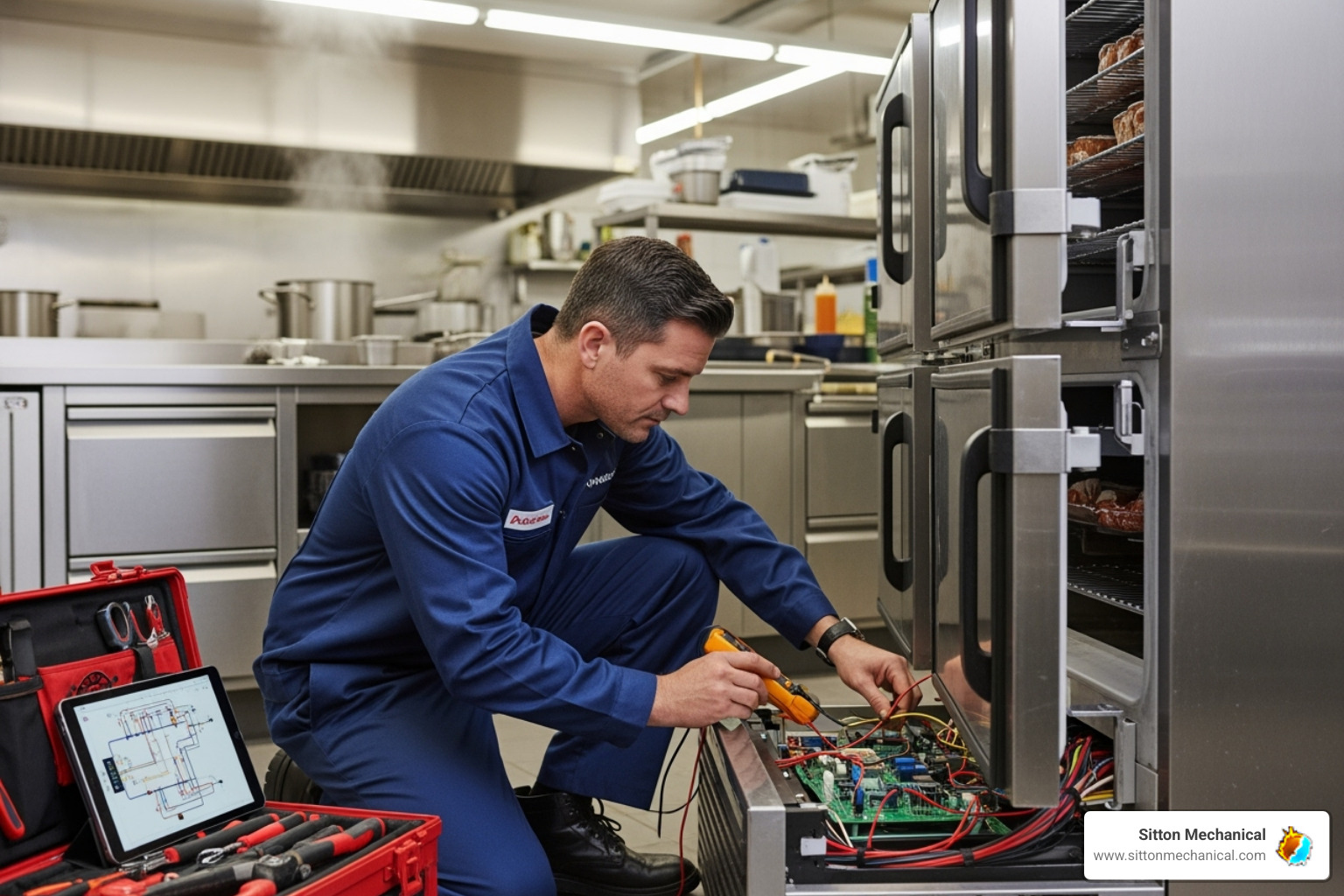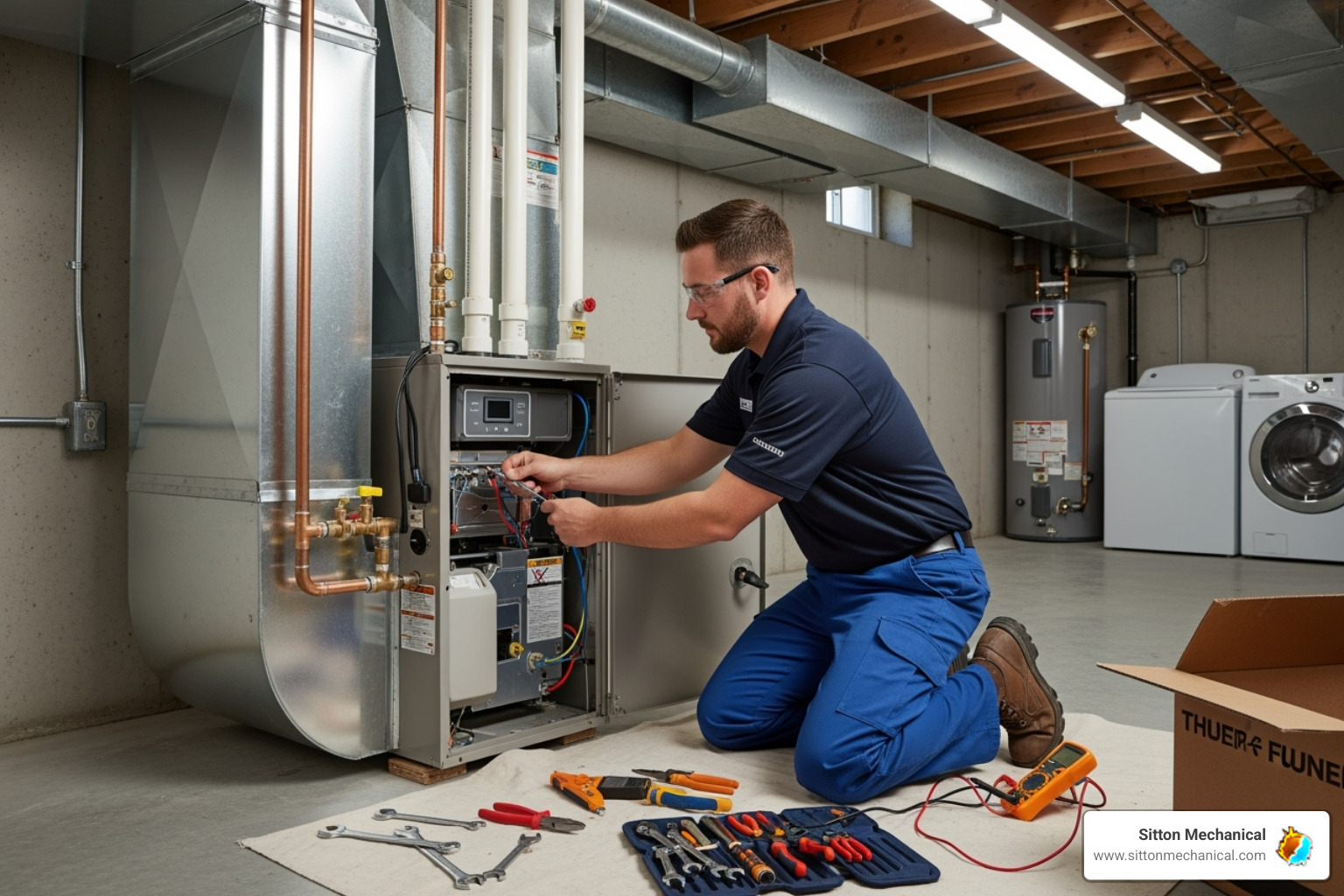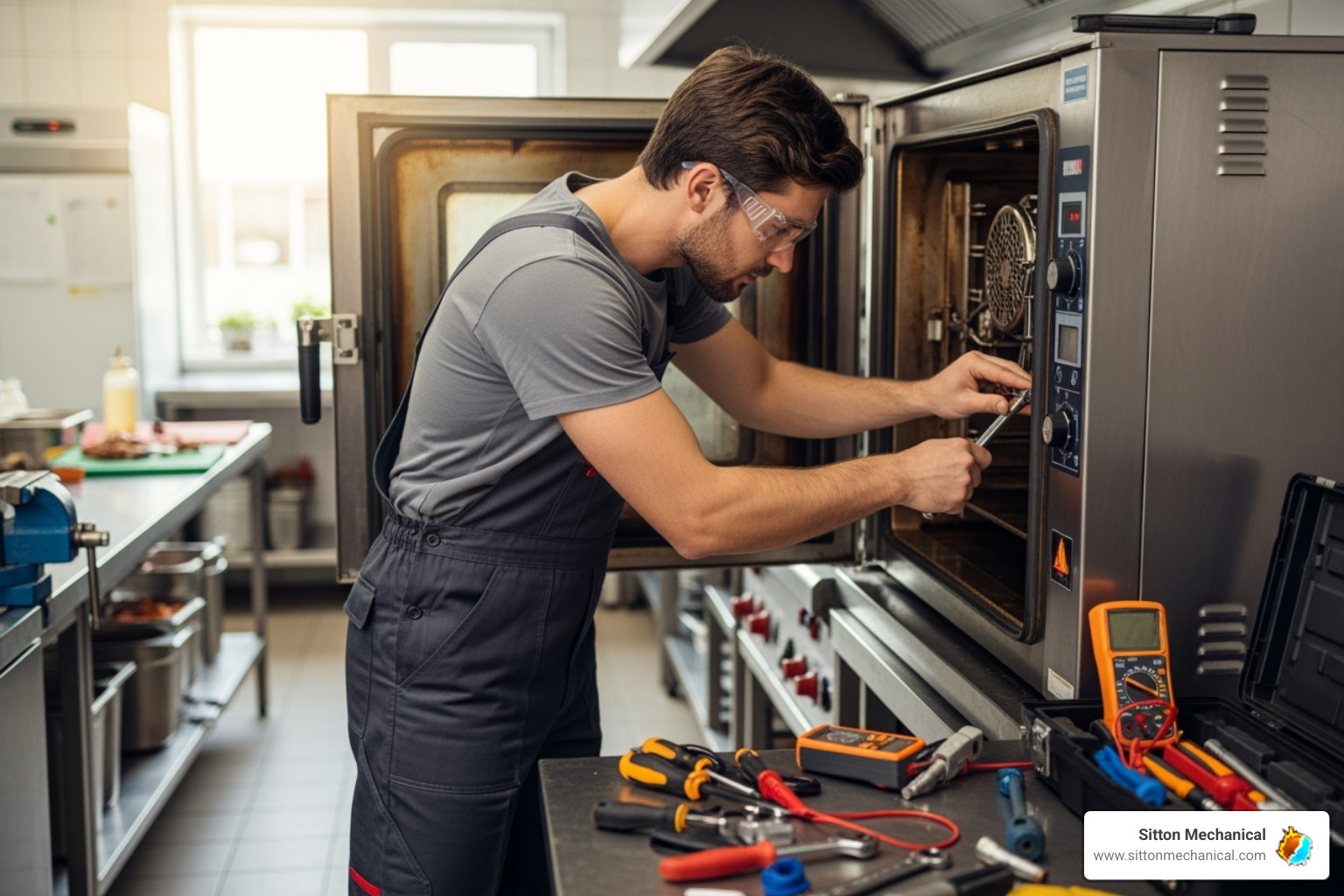Your Guide to a Flawless Freezer Setup
Commercial freezer installation is a complex process requiring careful planning, professional expertise, and adherence to strict safety standards. Whether setting up a new restaurant or upgrading a food service facility, a correct installation is crucial for food safety, energy efficiency, and long-term operational success.
Key Steps for Commercial Freezer Installation:
- Site Assessment - Evaluate electrical capacity, floor support, ventilation, and clearance requirements.
- Equipment Selection - Choose between walk-in, reach-in, chest, or display freezers based on your needs.
- Professional Installation - Panel assembly, refrigeration system setup, and electrical connections.
- System Testing - Temperature calibration, leak detection, and performance verification.
- Staff Training - Operating procedures, maintenance basics, and safety protocols.
As one industry expert noted: "A commercial freezer is one of the most important pieces of equipment you'll find in the average restaurant. The loss of refrigeration for just a few minutes can mean throwing out thousands of dollars in food."
The stakes are high. About 50% of all commercial refrigeration equipment failures are due to improper maintenance, but many issues begin with poor installation. Mistakes like selecting the wrong location or using inadequate electrical connections can lead to higher energy bills, frequent breakdowns, and compromised food safety.
Professional installation ensures your freezer operates at peak efficiency from day one. Proper setup includes everything from ensuring adequate ventilation to correctly sealing panel joints and calibrating controls. When done right, a quality commercial freezer installation can provide decades of reliable service.
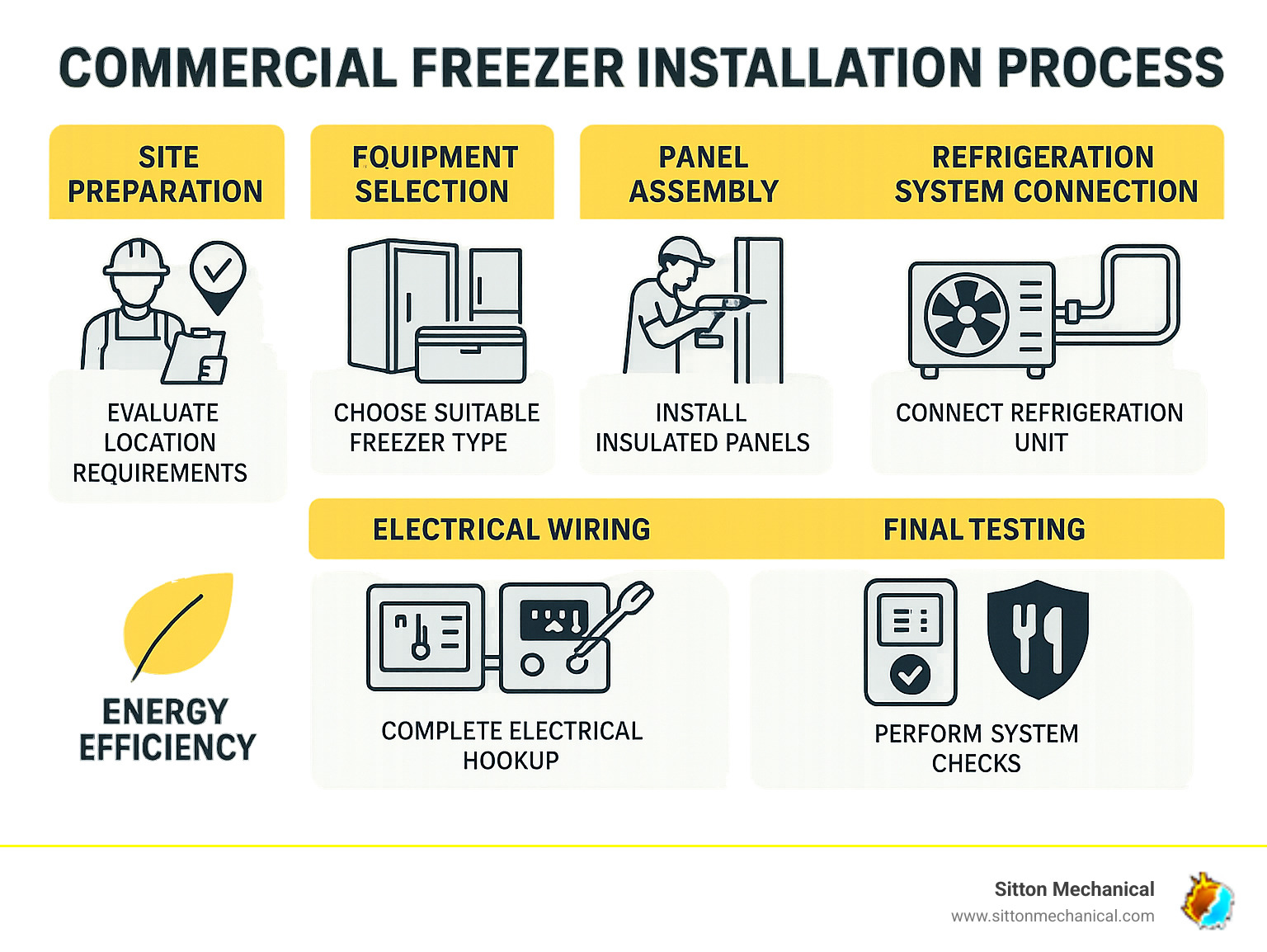
Pre-Installation Planning: Choosing the Right Freezer and Location
Pre-installation planning is the blueprint for a successful commercial freezer installation. Before a technician arrives, two critical decisions must be made: which freezer type best serves your business, and where it should be located. Getting these choices right from the start saves significant time and money, preventing issues like inadequate capacity or high energy bills from poor placement.
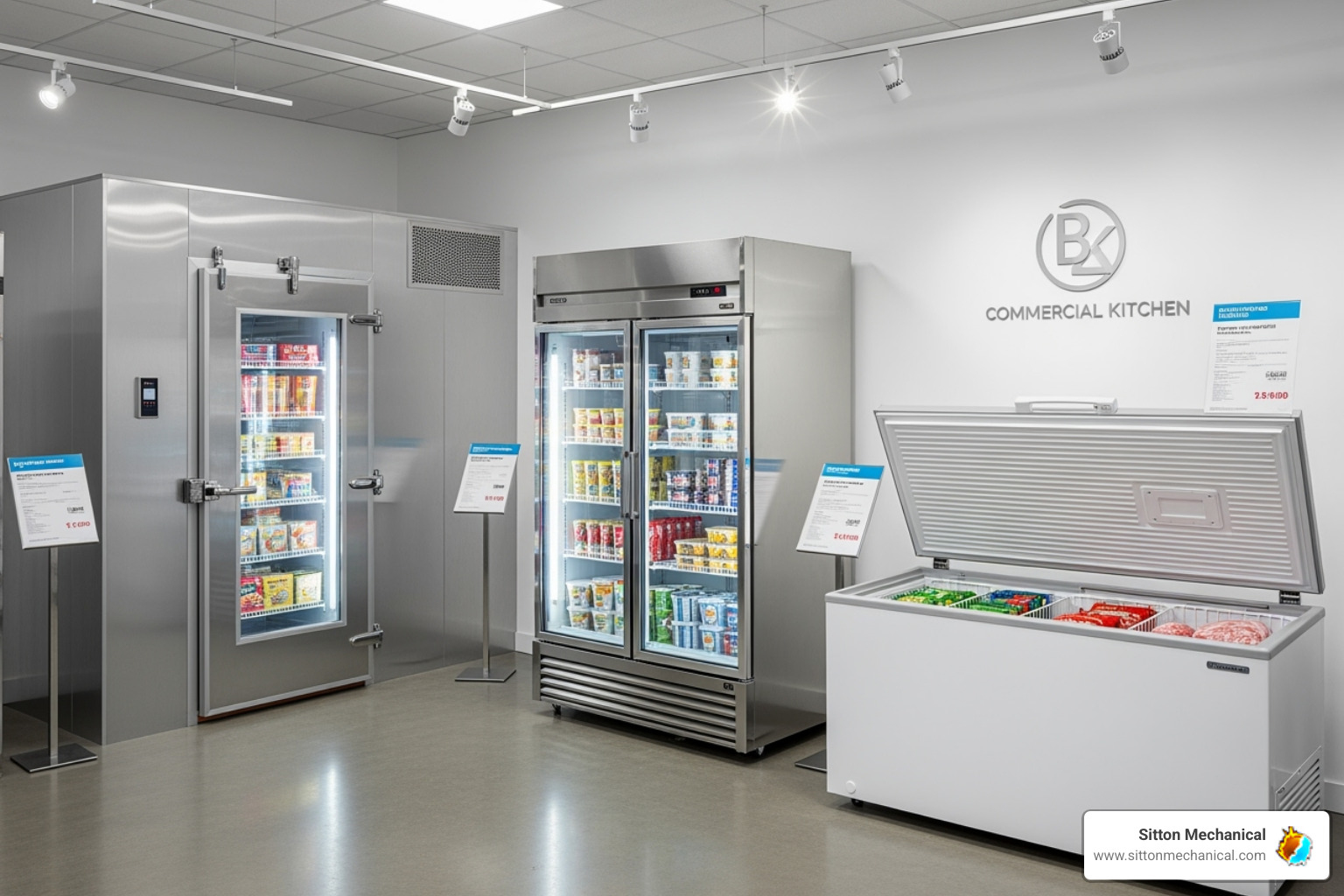
Selecting Your Commercial Freezer
Understanding your business needs makes choosing a freezer much clearer.
- Walk-in freezers are room-sized units ideal for high-volume operations like restaurants and grocery stores that require bulk storage. Companies like Scientific Solutions Fineline™ Custom Walk-ins can build these to exact specifications.
- Reach-in freezers are standalone units, similar to a residential refrigerator but built for commercial durability. They are perfect for smaller kitchens needing quick access to frequently used items.
- Undercounter freezers slide under prep counters, keeping ingredients within arm's reach and maximizing floor space in smaller kitchens or bar areas.
- Chest freezers are highly efficient at holding cold temperatures because less cold air escapes when the top is opened. They are excellent for long-term storage of items accessed infrequently.
- Glass door merchandisers both keep products frozen and display them to customers, making them essential for convenience stores and ice cream shops to drive impulse buys.
Match the freezer to your workflow and storage needs, considering future business growth.
Critical Factors for Freezer Placement
Choosing the right location is crucial for performance and energy efficiency.
- Level flooring is essential. An unlevel freezer can prevent doors from sealing properly, strain the compressor, and create safety hazards. The floor must support the unit's full weight.
- Adequate clearance, typically at least four inches on all sides, is necessary for proper airflow. Cramming a unit into a tight space forces the system to work harder, increasing energy costs.
- Proximity to heat sources like ovens, grills, or direct sunlight should be avoided. The compressor will run constantly to combat the extra heat, leading to premature wear. Smart placement helps optimize commercial refrigeration units for maximum efficiency.
- Drainage access is needed to manage condensate runoff, preventing puddles, slip hazards, and water damage.
- Electrical access is critical. Commercial freezers often need dedicated 208V or 230V circuits. Your electrical system must be able to handle the load safely.
- Local building codes are non-negotiable. Many installations require permits or health department approvals. We stay current on Stillwater regulations to ensure compliance.
The Professional Commercial Freezer Installation Process
Once planning is complete, the commercial freezer installation begins. This complex process requires precision assembly, refrigeration expertise, and electrical know-how, which is why experienced professionals are essential.
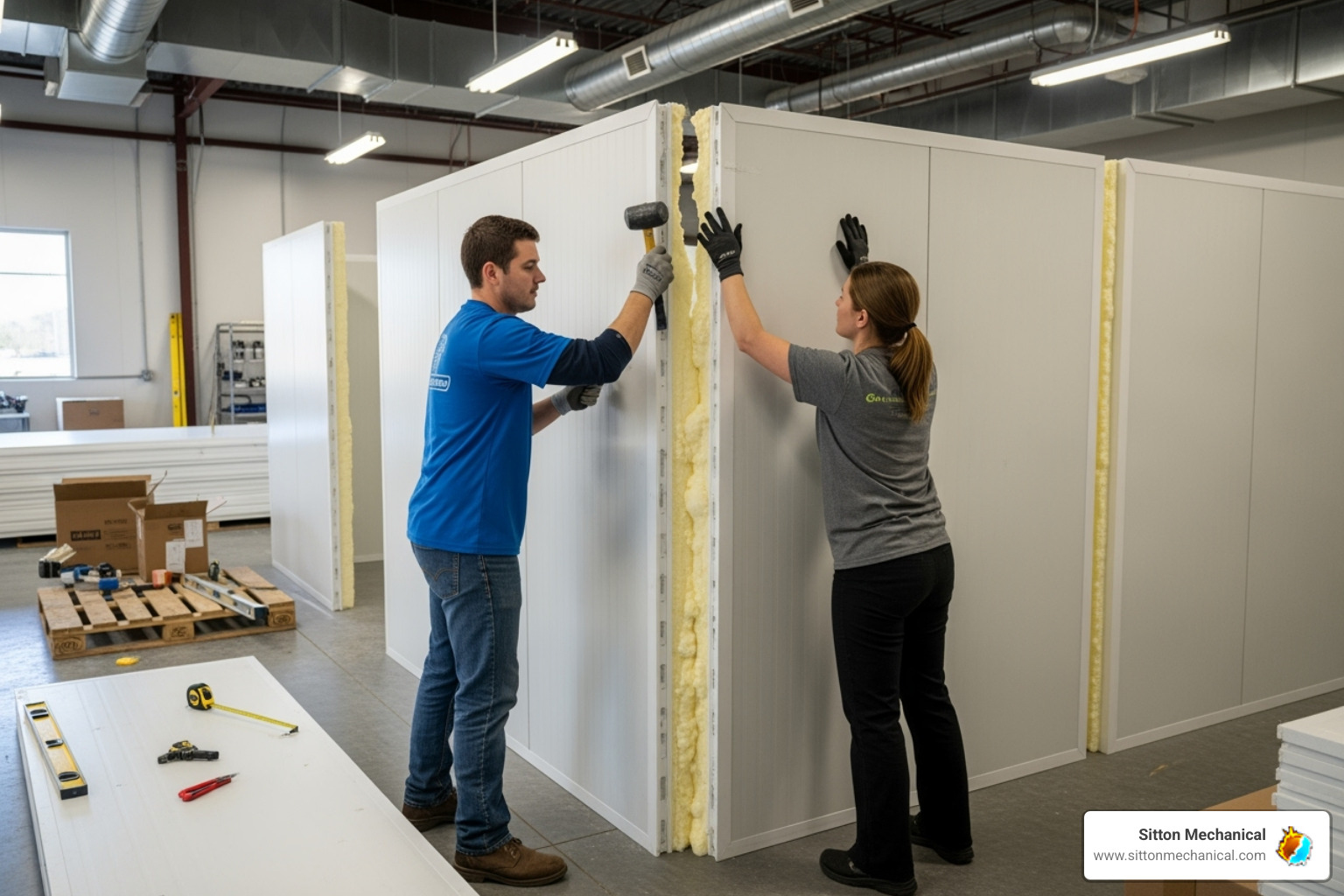
Site Preparation and Panel Assembly
First, we conduct a thorough inspection of all components for shipping damage and to ensure all parts are present. We then mark the layout for the unit on a clean, level floor.
Wall panel installation begins at a corner, with each panel locked into the next using cam lock fasteners to create tight, 1/16" joints that prevent air leaks. Ceiling panel installation completes the structure's final form. Throughout this process, we are sealing every joint with butyl caulk, which is the first line of defense against air leaks that reduce efficiency. A level foundation and proper seal are key to how we Handle Commercial Refrigeration Needs effectively.
Refrigeration System and Electrical Integration
This phase brings the freezer to life.
Condensing unit placement is critical; the unit houses the compressor (the heart of the freezer) and needs adequate ventilation to avoid overheating. Inside, we mount the evaporator coil, which absorbs heat from the storage space. Running refrigerant lines connects these two components in a closed-loop system. Understanding the refrigeration cycle explained is vital to ensure lines are installed without leaks for efficient flow.
Connecting electrical circuits must adhere to safety codes. Commercial freezers need dedicated 208V or 230V circuits with proper grounding and GFCI outlets where required. We also install safety features like the inside safety release mechanism. The control panel setup involves programming temperature settings, defrost cycles (typically automatic), and monitoring features.
Final Checks and Commissioning
The installation is not complete without comprehensive testing.
- System testing: We run the compressor, fans, and defrost mechanisms through a full cycle.
- Temperature calibration: We ensure the freezer maintains the precise temperature required for food safety and quality.
- Leak detection: We check every joint and seal in the refrigerant system with professional equipment.
- Verifying door seals: We check every gasket to ensure a tight seal, preventing energy waste and frost buildup.
- User training: We review operating procedures and basic maintenance with your staff. This knowledge makes ongoing Commercial Refrigeration Maintenance more manageable.
When finished, you have a fully integrated cold storage solution ready to serve your business.
Why Professional Installation Maximizes Your Investment
When investing in a commercial freezer installation, you're making a significant commitment to your business. The difference between professional work and cutting corners can make or break that investment. Trusting your expensive equipment to expert hands is essential for its performance and longevity.
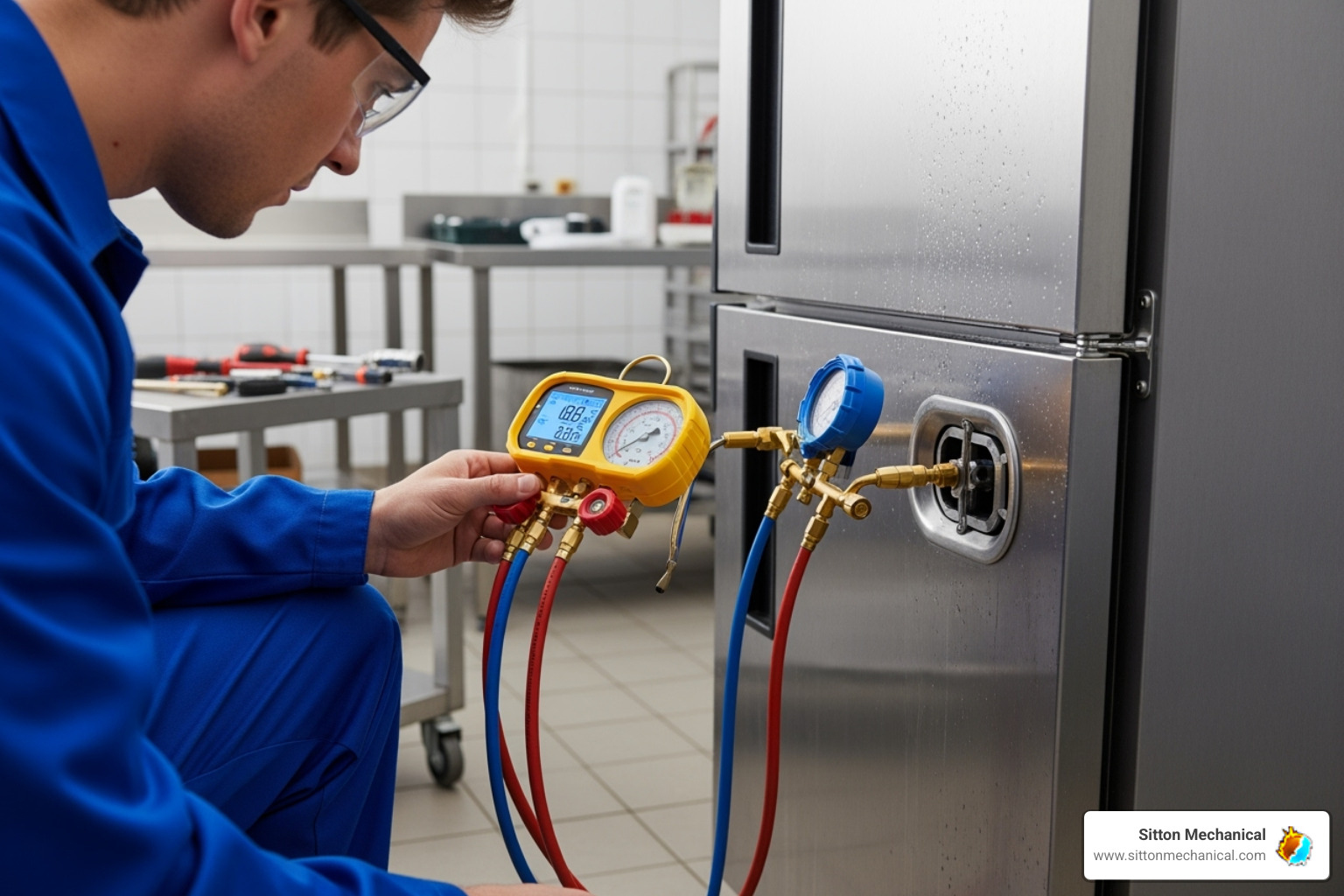
The Impact of Proper Commercial Freezer Installation on Efficiency
Professional installation open ups your freezer's full potential from day one. When certified technicians handle your commercial freezer installation, every component works as the manufacturer intended.
- Optimal performance starts with precision. Technicians ensure every panel fits perfectly and every seal is tight, allowing the freezer to maintain consistent temperatures without overworking.
- Reduced energy consumption is a natural result of correct installation. Proper refrigerant charging, tight seals, and optimal airflow placement minimize energy waste and lower utility bills.
- Consistent temperature holding keeps your inventory fresh longer, reducing spoilage. This stability is achieved through professional calibration and ensuring insulation integrity.
Quality installation also works with other facility systems, like High-Quality Air Filtration Systems for Businesses, to maintain optimal conditions.
Avoiding Common Pitfalls of DIY Commercial Freezer Installation
While a DIY approach may seem to save money, the risks are significant and the consequences can be expensive and dangerous.
- Incorrect sealing is a common mistake that allows cold air to escape, forcing the compressor to work overtime and shortening the equipment's lifespan.
- Refrigerant leaks are an environmental hazard and a performance killer. Handling refrigerants requires certification and specialized equipment to prevent dangerous leaks and costly repairs.
- Electrical hazards from improper wiring can cause fires, serious injury, and equipment damage. Commercial freezers have specific voltage and amperage needs that must be met.
- Voided warranties are almost guaranteed with DIY installation, as manufacturers require professional setup to maintain coverage.
- Poor performance from installation shortcuts often leads to a cycle of constant repairs. Many of the problems we address in Common Commercial Fridge Issues originate from a poor initial setup.
Choosing professional commercial freezer installation is an investment in reliable performance, energy efficiency, and peace of mind.
Post-Installation: Warranty, Maintenance, and Long-Term Care
Once your new commercial freezer installation is complete, the journey with your equipment has just begun. Like a new car, its real value comes from how well it's maintained. Understanding your warranty, establishing a maintenance routine, and committing to long-term care will transform a good investment into a great one.
Understanding Your Warranty and Service Guarantees
Your warranty and service guarantees are a safety net. We ensure our clients understand their protection to avoid surprises later.
- Equipment warranties from the manufacturer protect against defects. Coverage varies by component; for example, some manufacturers offer 15-year warranties on panels, while refrigeration parts may be covered for one year to 18 months.
- Labor guarantees from your installer cover the quality of the installation work, often for up to one year. This means any issues from faulty workmanship will be fixed at no charge.
It's vital to understand warranty exclusions. Damage from power failures, misuse, unauthorized modifications, or acts of nature are typically not covered. Most importantly, warranties are often voided if the installation is not performed by a factory-authorized installer or if the unit is not operated within its specified temperature range.
Immediate Maintenance After Installation
The first few months after your commercial freezer installation are critical for long-term performance.
- System monitoring: Keep a close eye on temperature readings to ensure they are consistent. Note any unusual noises or odors, as they can indicate a problem.
- Cleaning condenser coils: Dirty coils force the freezer to work harder, increasing energy bills and compressor strain. Manufacturers recommend cleaning coils every 30 days.
- Drain line maintenance: Blocked or frozen drain lines can cause water leaks and ice buildup. For low-temperature units, ensure drain line heaters are functioning. This helps prevent Defrosting Issues in Commercial Refrigeration Units.
- Door gasket inspection: Use the dollar bill test to check for a tight seal. If the bill slides out easily when the door is closed, the gasket may be compromised, leading to cold air loss.
- Lubrication and hardware checks: Annually lubricate moving parts and check that all hardware, hinges, and latches are tight to prevent premature wear.
Schedule a professional check-up within the first few months. This allows technicians to fine-tune the system and catch minor issues early. With proper care and ongoing Commercial Refrigeration Maintenance, your equipment will provide years of reliable service.
Frequently Asked Questions about Commercial Freezer Installation
We've helped countless business owners with commercial freezer installation. Here are answers to the most common questions we encounter.
What is the difference between a walk-in cooler and a walk-in freezer?
The primary difference is temperature. A walk-in cooler operates between 34°F to 40°F (1°C to 4°C) to keep products refrigerated. A walk-in freezer operates below 32°F (0°C), typically from 0°F to -10°F (-18°C to -23°C), for long-term frozen storage.
This temperature difference necessitates other design changes:
- Insulation: Freezers require much thicker insulation in walls, ceilings, and floors to maintain sub-freezing temperatures efficiently.
- Floor Construction: Walk-in freezers need insulated floors to prevent the ground beneath from freezing and causing structural damage to the building.
- Refrigeration System: A freezer's system is more powerful, with a larger compressor and specialized components to handle the more demanding cooling load.
How much power does a commercial freezer require?
Most commercial freezers, especially walk-in units, need a dedicated 208V or 230V circuit. While some smaller units might use 120V, it's less common for heavy-duty equipment. Amperage can range from 15 to 30 amps or more, depending on the unit's size, which is why a dedicated circuit is essential to prevent overloads.
The wiring is typically heavy-duty (12-gauge or 10-gauge), and proper grounding is mandatory for safety and code compliance. GFCI outlets may also be required in moisture-prone areas.
Crucially, a qualified electrician must verify that your electrical system can safely support the unit's specific load before installation begins.
Can you convert a walk-in cooler into a freezer?
Converting a cooler into a freezer is strongly discouraged. The fundamental design differences make it impractical and unsafe.
A cooler's panels have insufficient insulation for freezer temperatures, leading to massive energy loss, constant frost buildup, and an overworked compressor that will fail prematurely. Furthermore, most coolers lack insulated flooring, which can cause the ground underneath to freeze, heave, and potentially damage your building's foundation.
The cooler's refrigeration system is not powerful enough to reliably reach and maintain freezing temperatures. Attempting a conversion typically results in high energy bills, frequent breakdowns, and voided warranties.
For reliable performance, investing in a purpose-built commercial freezer is always the best and most cost-effective solution in the long run.
Ensure Your Business Stays Cool and Compliant
A proper commercial freezer installation is the heartbeat of your food service operation, protecting your inventory while ensuring safety and efficiency. We've walked through every step, from choosing the right unit and location to the detailed installation process and the ongoing maintenance that ensures years of reliable service.
Cutting corners on installation inevitably costs more over time through high energy bills, safety hazards, voided warranties, and operational shutdowns. Professional expertise is the key to avoiding these issues.
When certified technicians handle your installation, you get peace of mind knowing every connection is secure, every seal is tight, and every safety protocol is followed. Your business deserves equipment that works as hard as you do, maintaining perfect temperatures efficiently from day one.
For businesses in Stillwater, OK, and the surrounding areas, the certified technicians at Sitton Mechanical bring over a decade of experience to every commercial freezer installation. We understand your refrigeration system is vital to your success, and we handle every detail with the expertise your business deserves.
Ready to keep your business cool and compliant? Trust the professionals to handle your Commercial Refrigeration needs from start to finish. Your future self will thank you for making the right choice today.
Ready to Transform Your Home?




